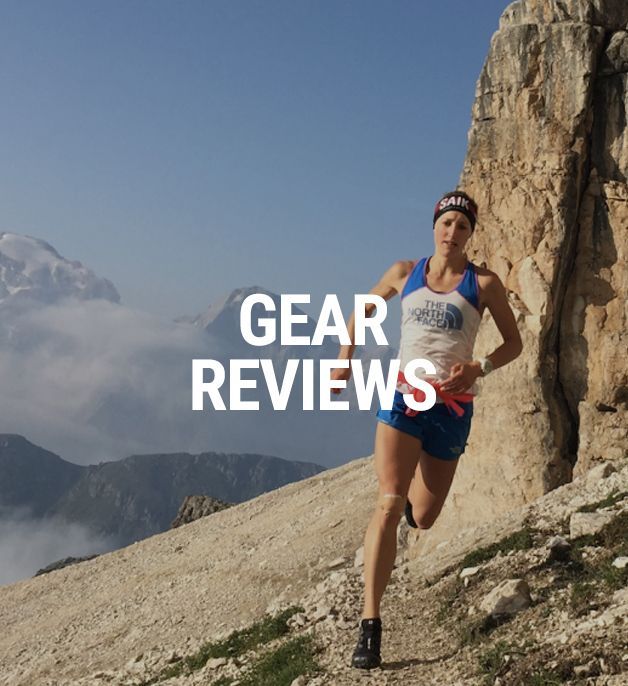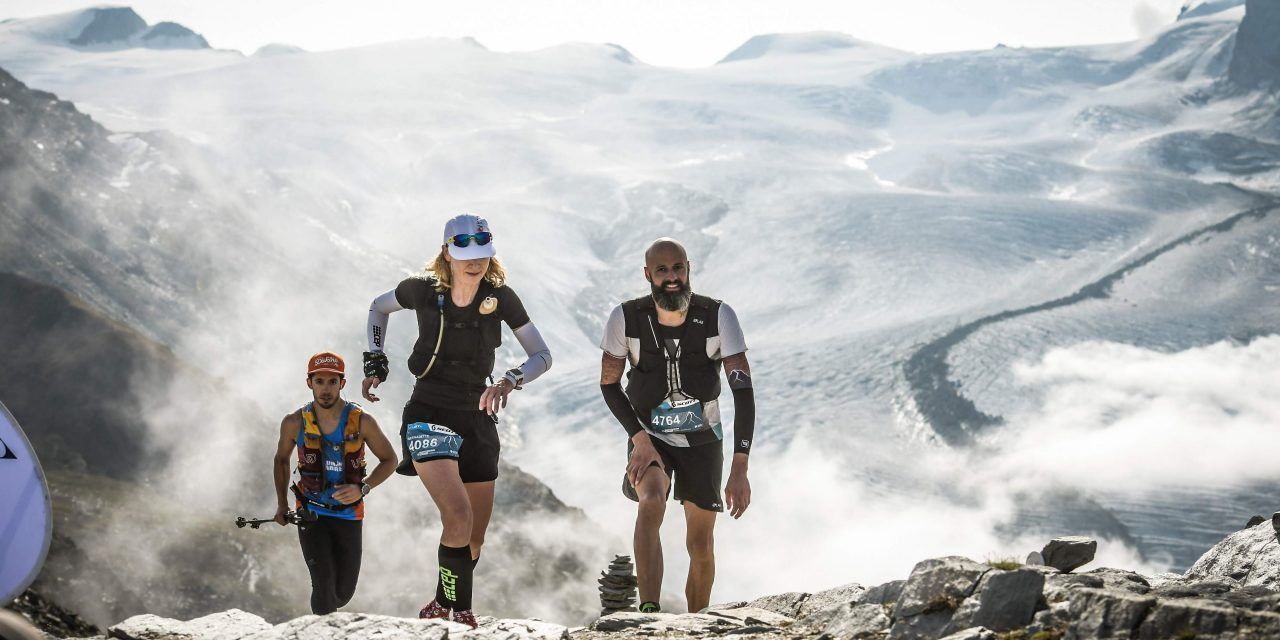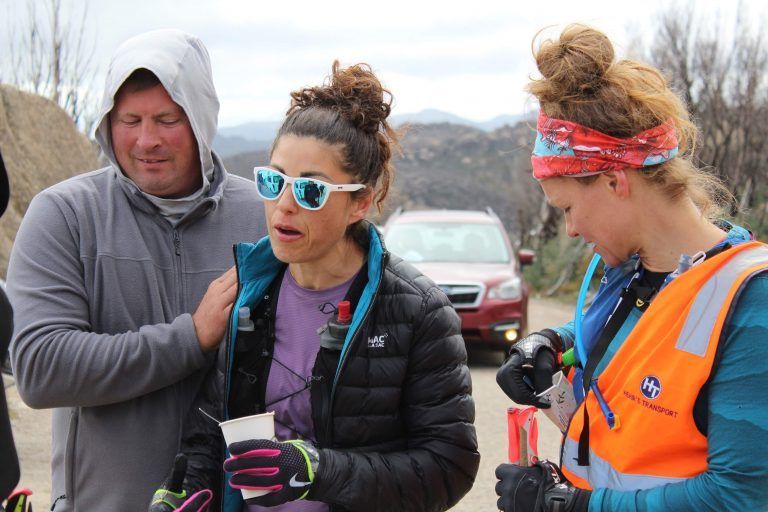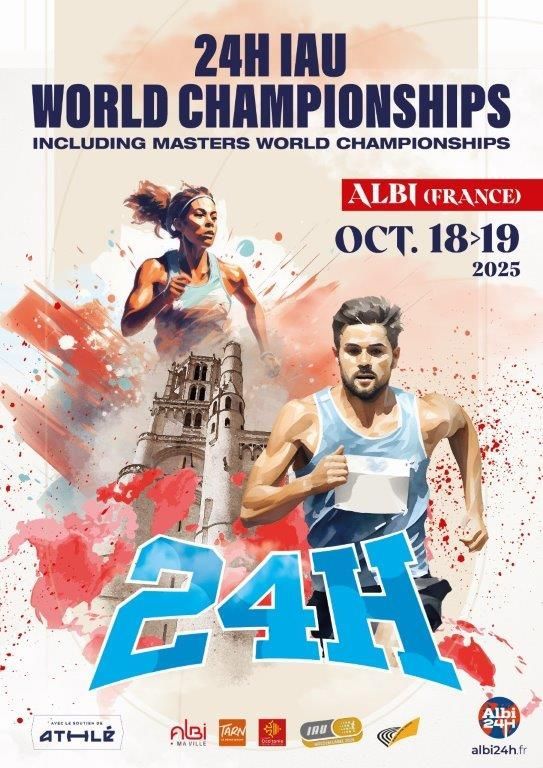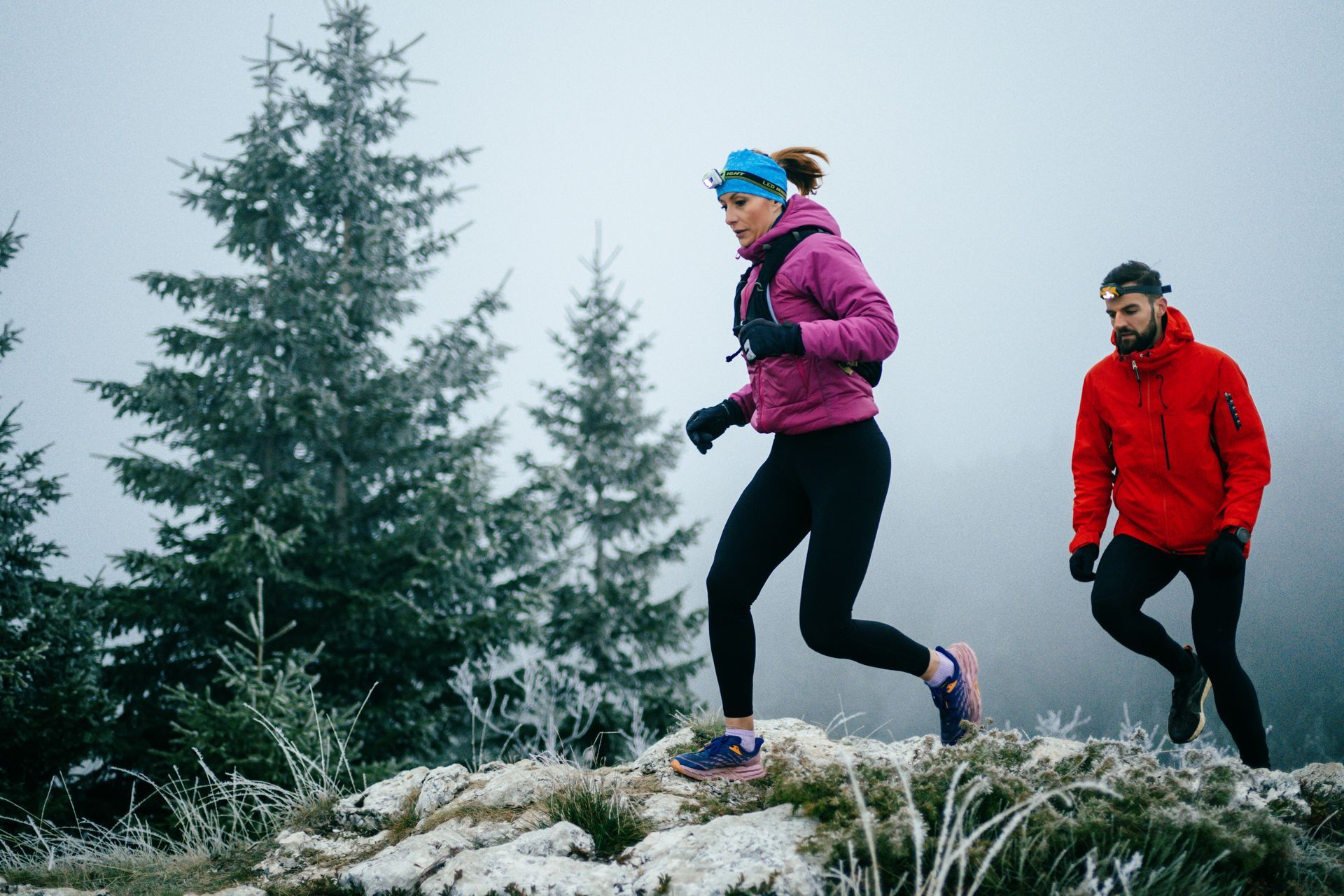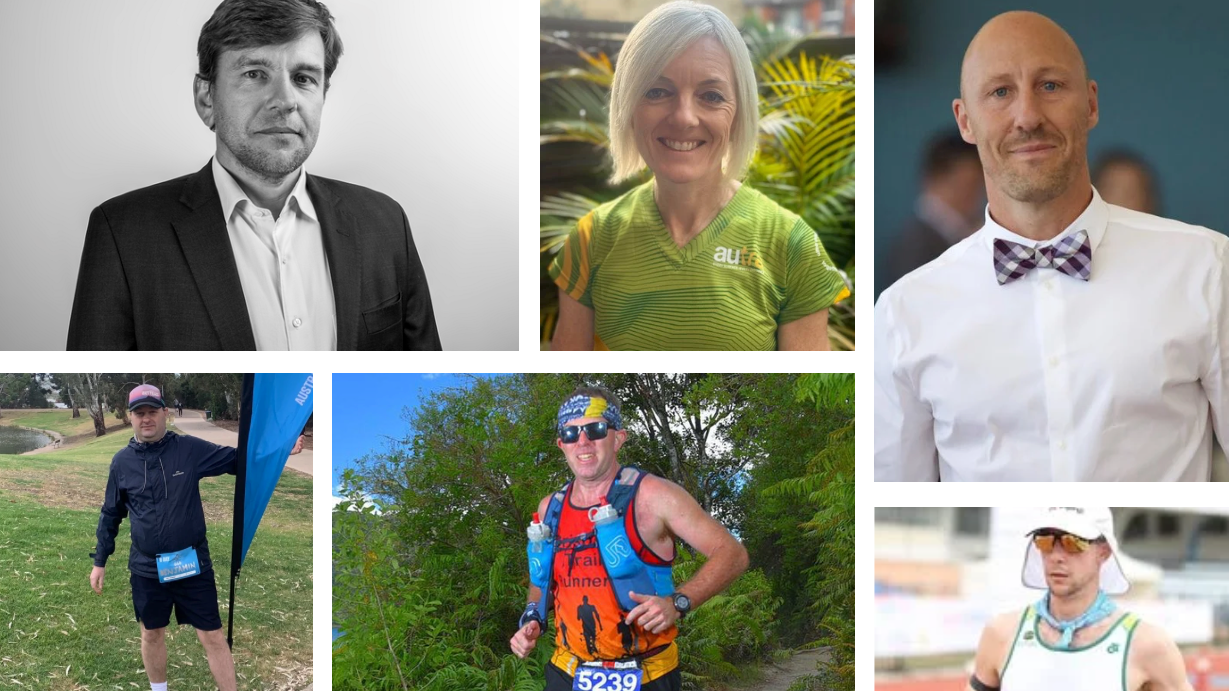Isobel’s chosen route was named the Victorian High Country 7 Peaks, taking her across the iconic and popular mountains of Mt Bogong (1986mt), Mt Mckay (1894mt), Mt Hotham (1861mt), Mt Feathertop (1922mt), Mt Buffalo (1723mt), Mt Stirling (1749mt) and Mt Buller (1805mt).
Isobel, 50 (pictured right) said she was familiar with most of the terrain so felt confident in the lead up to attempting her FKT, and with all the routes connecting to each other via Avenza Maps her support crew were able to know where she was at all times.
Isobel chose to do her FKT in the Supported category, meaning she could have a support crew to meet with her at certain points and help her refuel and resupply.
“I chose to do the FKT as a supported athlete because I know from experience how hard it is to do an ultra; I knew I would need and want help,” she said.
“Also, as much as I love running on my own, I like my experience to be like a team event, and my crew were my team.”
She said there was every possibility that she would do it again, and hoped other women would attempt to break her final time.
“You’re always going to do better the second or third time around, because you know the course and you know what to expect to some extent,” she said.
“I really had no clue what it was to go for that long because the longest I’d ever run before that was 44 hours so it’s not like I’ve done multiple trails like this; it’s quite a big leap to go from 44 hours to just over 67.”
Sleep was Isobel’s biggest enemy while out on her FKT, with periods of tiredness hitting her hard and that feeling of not being able to stay awake rearing its ugly head – but not once did she ever contemplate stopping or giving up.
“The sleep deprivation made me feel ‘out of body’, it wasn’t a nice feeling at all,” she recalled.
“At one point I had a guy pacing me and when he talked, he sounded really far away – even my own voice sounded like it was off in the distance, but having the support of my partner Ron and the rest of my crew made all the difference because all I’d do in those circumstances was look forward to seeing them at the next meet up point.”
Isobel understood that doing long distance solo running could appear daunting to some women, but there was no reason why it couldn’t be something for them to consider when they gained the confidence to do so.
“Doing an extreme challenge like I did is a natural progression for anyone who loves to test themselves,” she said.
“If you nail the organisation of it all, from training to logistics, you’ll be confident that you can – and will – get through it. Women are great organisers and more often than not, tougher than we give ourselves credit for.
“I’m just an ordinary woman pushing myself day in, day out to do the best and be the best I possibly can.
“Any woman can do that.”
It took Isobel 2 days 19 hours 22 minutes 12 seconds to complete the Victorian High Country 7 Peaks, where the total distance equated to 291km with a vertical gain of 11,932m.
WA local Bernadette Benson, who now resides in the heritage listed town of Wandiligong, Victoria is a Canadian-born ultra runner well known in the ultra community for her solo distances across the globe. Not only has she attained numerous Australian Open Records in a range of categories including for the 12hr (133.535km), 24hr (238.261km), 100mile (15:24:44) and 200km (19:58:31) but she’s also smashed several age-group records and been recognised as AURA’s Female Ultra Runner of the Year in 2014.
Referred to by West Australians as the ‘Godmother of Trails’, the now 52-year-old has also completed a range of long distance events like the Yukon Arctic Ultra (2016) where she ran 300miles and secured 1st Place, so it’s little wonder that Bernadette’s name is synonymous with the FKT – she’s done a total of 4, with one (Pilgrim Trail, WA) not confirmed as a route due to a number of contradictory flaws in the mapping signage.
Bernadette’s first FKT was in November 2015 where she went Unsupported on the Stirling Range Ridge Walk (WA) and completed the 43km loop (with 2500m elevation gain) in 11 hours 6 minutes 27 seconds; this trail is known to be difficult and largely unmarked with no designated path.
Her most recent FKT was the Cape to Cape Track in WA, a 130km coastal walking trail located in the south west of the state starting from Cape Naturalise Lighthouse, Dunsborough and finishing at the Cape Leeuwin Lighthouse, Augusta.
Having spent most of the summer months in early 2020 originally training for the Sri Chinmoy 24hr race for March, COVID suddenly hit and Bernadette found herself with no endurance race. Within a week of receiving the cancellation notice, she faced a flurry of preparation and jumped into the car to cover the Cape to Cape Track and aim for an FKT (it takes an average of 6 days to hike it with a backpack).
“Suddenly the pause button was hit on the world, and most paths in my immediate future were road blocked,” she said.
“No 24hr race, no trip to see family in Canada, no 6 day race in Hungary –there was only one clear path I could see. A 130km one, if I was willing.
“My running mate Stephen Huey had a few days off work so I had 24 hours to study the paper maps of the Cape to Cape Track, look at the existing FKTs, search through Strava and Garmin files, and figure out where a car could meet me.
“The next morning I threw everything in some bags, jumped in the car with an instant coffee and wrote the basic plan out as my running mate Stephen Huey drove 261km south of Perth to crew for me.”
She completed the Cape to Cape Track in 19 hours, 27 minutes 22 seconds.
With a heart that has for many years been a source of encouragement for women in the sport of running, Bernadette has always been a source of knowledge while at the same time cheering others on to go beyond their perceived capabilities.
“I think even if a person, a woman, sees something of an opportunity when it comes to running an FKT, just take it and make it your own,” she said.
“There are so many ways to get started; one woman I know did a long distance run, about 75km or 100km, and her partner met her at all the designated places they’d agreed on so essentially she had her own personal aid stations and she was accounted for.
“That is an amazing way into considering stepping into anything like a solo run, or even opening up to the idea of doing something unsupported. Start with a set distance and have your crew member meet you every hour, maybe every 2 or 3 hours as you get more confident, and then expand on that.
“It’s a bit like exposure therapy, where you stretch your own boundaries, and that is an amazing thing.
“FKTs give us the opportunity to be the boss of our running adventure. We can challenge ourselves just as much as we want – being able to choose distance, terrain, weather, time of year, level of support, route complexity and need for navigation.
“And if it all falls apart, we can still try to make it the Funnest Known Time!”
Pictured: Bernadette Benson racing at the 2018 Matterhorn Ultraks Sky Race. Photograph – Sportograf.


